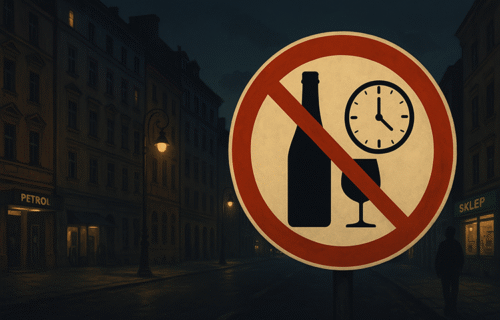Warsaw’s City Council has voted to restrict the sale of alcohol in shops and petrol stations at night, a move that has triggered debate among residents, businesses, and local leaders. The measure, set to take effect in two central districts, will prohibit alcohol sales between 10 p.m. and 6 a.m. and is intended to reduce late-night disturbances.
The decision passed despite strong opposition from a majority of the city’s districts. Fourteen out of eighteen district councils had argued that the plan lacked evidence of necessity and could damage small businesses. Public consultations showed similar resistance, with many residents questioning whether the measure would address the problems it seeks to solve.
Warsaw joins a growing number of Polish cities that have tested local bans on late-night alcohol sales. Some have claimed success in reducing noise and disorder, while others have reversed the restrictions after finding that drinkers simply shifted to different hours or locations. In Kraków, for example, police noted fewer nighttime incidents but more offenses during the day.
City officials say the new rules are part of a broader effort to improve public safety and reduce alcohol-related harm. However, critics argue that Warsaw, which consistently ranks among Europe’s safest capitals, does not face the same scale of late-night problems as other cities. They point out that police and city-guard interventions have declined steadily in recent years, suggesting that existing laws are already effective.
Business associations warn that the ban could hit local shops hardest, particularly small corner stores that depend heavily on evening alcohol sales. Warsaw currently collects tens of millions of złoty each year from alcohol licence fees, and opponents say the measure could reduce that income while doing little to curb consumption.
Convenience-store chain Żabka, one of the largest alcohol retailers in Poland, said its franchisees would follow any new regulations. The company rejected suggestions that it had tried to influence the city’s decision and emphasised that it supports fair competition and lawful business practices.
The national government is also considering new restrictions. The Ministry of Health has proposed a nationwide framework that would ban alcohol sales at petrol stations and tighten rules on promotions and online sales beginning in 2026. Supporters of the proposal argue that it will encourage healthier habits, while opponents view it as another step toward over-regulation.
As the capital prepares for the partial rollout of the nighttime ban, the debate reflects a wider question facing Poland’s cities: whether restricting consumer freedoms is an effective way to promote public health—or simply a costly gesture that shifts, rather than solves, the problem.
Source: WEI
